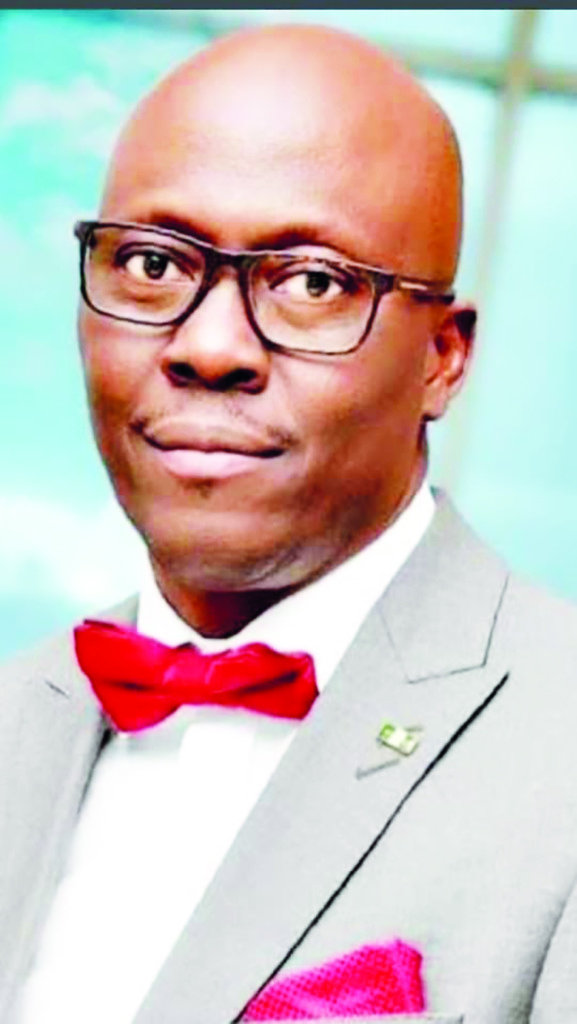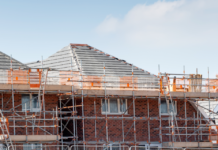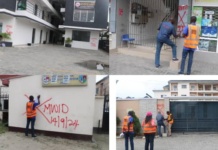
Prince Akintoye Adeoye, a lawyer, is the National President and Chairman of Council, Real Estate Developers Association of Nigeria (REDAN). In this interview with DAYO JACOB, he spoke extensively about some happenings in the sector: the challenged business environment, steps to curtail cases of fraud/corruption, pending Housing and Mortgage related Bills, and adoption of technology and best way to attract foreign investments to the industry, among others.
How can you describe the Nigerian real estate right now?
Nigerian real estate is going through a season when you talk about the increase in the prices of building materials. You can’t bank on your figures; you can fix your selling price in January and by March, inflation has rubbished everything. In fact, to even edge it is very difficult. But the good news is that the exchange rate, which is very significance in influencing pricing in Nigeria, is coming down. However, it is too early to start jumping up that the Central Bank of Nigeria (CBN) is getting it right because it has not been tested. Inflation at over 30 per cent is not impressing at all. When you talk about the purchasing power, you know Naira has lost significant value, so disposable income is low to the extent that there is no room for savings. So as I have said, the market is challenged now.
How are the real estate developers coping in this challenged environment you mentioned?
Most developers borrowed money for their construction. Things are not easy for them now and that’s the truth. CBN has reviewed interest rate in upward trend twice in six months; that’s the MPR and the cost of building materials for many of the products has doubled. For medium and upper construction, almost 80% of the input is still foreign with the impact of the exchange rate. I can assure you that developers are not finding it easy at all. For people that are in off take business, prices have been fixed and subscribers have been given opportunity to pay within a period, and transaction is already locked and you cannot reveal the selling price. This is another serious challenge to many developers.
I am not saying that it is a picture of gloom all through but generally speaking, developers are really impacted by the negative trends in this economy.
With what you just painted about developers’ predicament, are you sure it’s still possible to bridge the huge housing deficit in country?
For me when we are talking about housing deficit and bridging the gap, we need to be intentional in the act. A whole lot of things have to be put into place. The land administration system in Nigeria has to be revisited; mortgage has to be revisited, because without those fundamentals, it is beyond building if government says that they are even subsidizing and they are doing homes.
So when you build these houses, how would the people that will buy the houses get the money?
The Federal Mortgage Bank of Nigeria can help, but they have limited resources. So government and individual plans should transcend Federal Mortgage Bank’s window. The Federal Mortgage Bank is the only bank-offering mortgage at a single digit in Nigeria.
The government have to do more, whether to recapitalise and also for the strict implementation of the The Mortgage Act where insurance and banks have to contribute a portion of their profit to support that pool of funds.
Get me right, it is not a rocket science to tackle housing challenges in any country especially in Nigeria, but do we have the political will to do it. Are we sincere about it? Do we really want to do it? Government had supported Pilgrimage, government had supported farming, government had given support to Nollywood, and government had given support to many sectors in the country apart from housing.
Maybe there is not much pressure from your end
REDAN has always been pressurizing government and we are still going to mount pressure on them in that regard, but I think that pressure on them in that wise is beyond the association.
The next level of pressure we should be doing is to sensitise the consumers so that if it is not just REDAN doing the sensitization, we sensitize the consumers and then the people can realize that we need to shout and we need to cry out that government, please don’t forget us. We will be in a better position to do more.
There are some housing and mortgage related bills before the National Assembly and I learnt that these bills have been there for almost five to six years. I want to know if your group is following up with these bills. What are you doing to ensure that these bills are given the required urgency?
Well, I’m aware the National Housing Fund (NHF) Act and some other bills that are related to housing development and real estate sector in Nigeria are actually pending; I don’t know the current position in this regard.
One thing that has to do with the mode of building in Nigeria is that we rely on bricks and mortal. How much of modern building methods or technology do we have in the Nigerian real estate sector? What are you doing about this challenge?
Yes, some of our members have embraced technology and alternative way of handling construction particularly housing construction but I want to agree with you that majority sticks to the brick and mortal solution. We are embracing things and everything comes to the issue of cost. Many developers today stick to the brick and mortar system because of capital. If you want to go into technology, it is more expensive because it is not cheap when you are just building few buildings. It becomes cheap to you when you are building so many buildings. For example, if you are doing panel buildings, so the cost is high when you are doing few ones. It is when you are doing volume that is when your cost starts to reduce seriously. Since developers have limited opportunities to access Construction Fund in Nigeria, so many developers still build in small units and not massive units that we can utilise the economy of large-scale production using alternative methodology.
Let’s talk about the issue of fraud/corruption in the real estate sector we’ve heard complaints, most especially from people in the Diasporas how some fraudulent developers and agents duped them in the process of investing back home. What is REDAN doing to curtail ungodly practice among your members?
Well, the issue of fraud is not just related to real estate. Fraud generally is not a Nigeria thing it is everywhere. We have developers that are doing very well and we also have developers that are fraudulent. As an association, we encourage people to always make enquiries. Some of our members that are perpetrating fraud are not finding it easy again because the association is now monitoring their operations.
Can we stop fraud? The answer is No! But I think we can minimize it. So we want to encourage people buying properties in Nigeria to always get In-touch with us so that we can recommend to them companies that we certified to be very good and ready to deliver on their promises.
What are those things that Nigerians abroad that want to invest in real estate should look out for before parting with money?
The first thing is that they should always get a lawyer who would conduct search for them. Another thing is that people are not always willing to pay professionals, but it is cheaper to pay professionals to do due diligence for you than to loose your money. If I go to the United Kingdom (UK) today and I want to buy property, I will talk to a professional. I will seek advice. If you are coming to Nigeria to buy property, you need to get in touch with professionals, seek advice, do due diligence because there is no way to identify a thief and the guy that is not a thief. It is due diligence that may probably help you to distinguish between a good transaction and a bad one.
Another issue is the lack of virile mortgage industry. People want to buy housing units but there’s no mortgage. Do you have suggestions on how get this right?
The only mortgage institution in Nigeria that we can all refer to today, that is granting single-digit facility is the Federal Mortgage Bank. We have been clamouring and we would continue to clamour that government should recapitalise the Federal Mortgage Bank because if you don’t do that, the issue of affordable housing will remain in a trash.
How do other mortgage institutions source money?
They sourced their money through the market and we are saying that somebody that sourced money for two digits should give it out at one-digit interest? The answer is no! It is not possible. So government have to recapitalise the Federal Mortgage Bank and other institutions that supposed to give federal mortgage bank money. Government has to do something about the NHF Act. It is very important.
What do you think is hindering foreign investment in the sector?
For foreign investment, money is useful and also required in every economy. Attracting investors whether foreign or local, it is about government creating the enabling environment and policies. We have been deceived for a long time thinking only about foreign investments, we even have local investors, local investments. Have we even put priority on how we can attract local investors before we are talking about foreign investors? Look at what is happening to Landmark today. Landmark is a local investor; he has put about $200 million in that place, according to him, and so overnight another thing is going to happen concerning his business. If you ask me, I will say that foreign investors are good but let charity begin at home. Let’s begin to encourage local investors to do more and the foreign investors will now be envious of the returns. I will quickly give you an example, look at our stock market, because the stock market is doing very well through local investors, the foreigners are now coming without even inviting them because they can see the figures. They can see that it is obvious that there is money in this economy and the business is striving and is doing very well. What I’m saying is that we are going to attract foreign investors but let us support the local investors. Let there be good policies in place. If I want to process my building approval, let me get it within reasonable time. If I want to process my Governor’s Consent, let me get it within reasonable time. Let the bank support me so that when the foreign investors see that the local investors are making money and they are doing really well, they will want to come here and put their money.
Lately, we have been hearing about demolition of estates in Abuja and Lagos. What does this act portends for investment and businesses of real estate in general?
In addressing the issue of demolition, there are so many questions that you have to ask. You have to ask the developers whether they have the right documents, the right approval.
You know people at times take those laws into their hands. They move to government’s land and start construction without title, without approvals. So you can’t blame government 100 per cent for demolition. I think you have to take cases and analyse them so you don’t bundle everything together and make it a generic thing. There are cases of demolition that are political. If that happens, then you know what to do. You go to court and challenge the demolition, but in so many of those cases, it is not the issue of political victimization but of recklessness on the part of developers.
Let’s talk about your project. Tell us your new housing projects and your target?
There are two projects – the one in Abuja is still at the conception stage. So it is not a product in the market. We have another one at Lekki, Lagos, which is also a brand new product. It comprises terrace houses and flats. The estate is called Saggezza Gardens. The land space is within 15 hectares of land. It is a new project, we are not selling, we are just doing clearing and we are processing the building approval. So the approvals are not ready and until then, we won’t start construction.
Who are the target audience?
We are targeting Nigerians at home and Nigerians in diaspora and friends of Nigeria that wants to invest in Nigeria.
When is it going to be ready?
We are not sure of when the approvals will be ready. So it is when the approvals are ready that we. Will start calculating the time of construction.
We are sure of the time of construction. I mean the duration of construction because we are not sure of the duration of getting our approvals. So we don’t have control over government, but once the approvals aspect is sorted out, we can control the duration of construction.
We are not giving time because we don’t want a situation where we will say it is going to be ready and we are getting money from people and it is not ready. So for now, we are not collecting money from anyone. We are just waiting to get the approvals ready.
I’ve seen hundreds of on-going estate developments along Lekki-Epe corridor of Lagos State. Can we say there are enough infrastructures to support these developments?
Let me commend the Lagos State Government for its efforts in making sure that Lagos – Epe Expressway is being reconstructed and modernised. Government has actually done a lot of works on that road and it is a concrete road. It is well done and has eased traffic along that corridor. Also, let me quickly commend the Federal Government because it has commenced the Lagos – Calabar Coastal Road. When the Coastal Road is ready, I think it is going to really help in decongesting traffic along that corridor. There are lots of improvement on road infrastructure and also the corridor that is very commendable.
What mechanism is in place to regulate your members?
In our book, REDAN’s membership is about 4,000. We are actually targeting 20,000 at the end of this year. We want more developers in the country to join the association and we have a Bill already on the President’s table and once that Bill is signed, it will make it compulsory for developers to be members of the association.
What that passage of the Bill will do is that it will enhance regulation. We will profile members so that before you buy any property, you are going to be sure that such a developer is REDAN’s member and the association will also do KYC on members which is very important for people that want to buy property in Nigeria, particularly people abroad. As I have said, due diligence is very important and it will be very important too if they contact the association to give their report on any development or developers that they want to transact business with.
During the last regime, your association tried to partner government to build some houses. How many units are we targeting all together?
We are targeting 10,000 units all over the country, particularly Lagos, Abuja, Port Harcourt, Kano, the major cities first.
What’s your comment about the Modern Mortgage Foreclosure Law? I discovered that only few states actually adopted it.
Just few states have adopted the Modern Mortgage Foreclosure Law. We will continue to sensitise other states that have not adopted the law to adopt it. Foreclosure is very important because it makes transaction very easy and allows investors to recoup their investment where there are defaults. It is an enabler to stimulate the sector and it is a welcome development.










